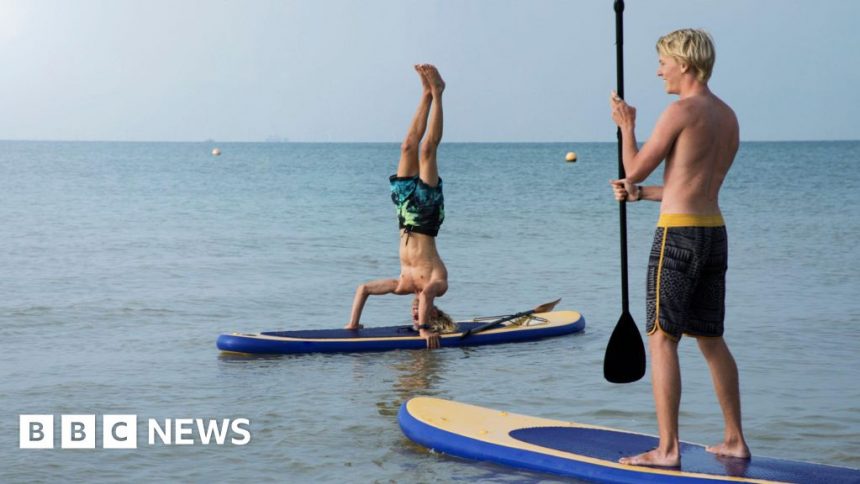Paddleboarders urged to take care after rescues
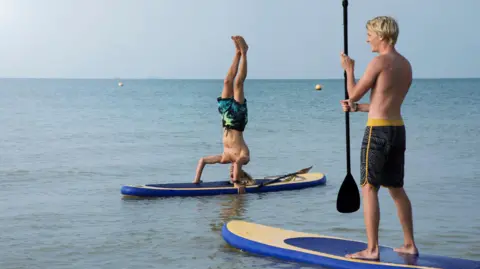 Getty Images
Getty ImagesAmateur paddleboarders are being urged to be careful if they head on to the water over the bank holiday weekend.
Fourteen people were rescued by Swansea RNLI crews two weekends ago, with other rescues reported by Port Talbot and Pembrokeshire crews.
About 600,000 people in the UK regularly paddleboard, according to sporting organisation Stand Up Paddleboarding (SUP).
Anna Snow, of the RNLI said people needed to know what they were doing before jumping on board.
Sarah Perkins, from Cardiff, has been an SUP racer for eight years, having windsurfed before then.
She has competed in three world championships and will head to Copenhagen in September to compete internationally again.
She said skills take a long time to build and she sees a lot of people struggling.
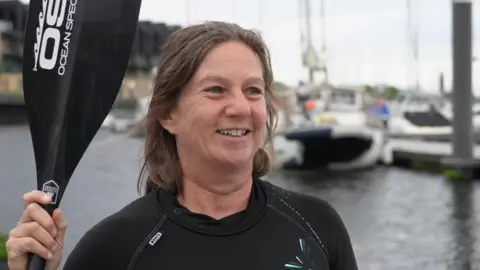
“Its a really accessible support but it’s not easy,” she said.
“I see a lot of people out and they are not very skilled and if they were just a tiny bit more skilled they would be having so much more fun.”
She said she had seen people with boards the wrong way round and leashes, which should be attached to legs or waists, around people’s wrists.
Conversations with experts or lifeguards could make a big difference, she added.
“You don’t know what you don’t know.
“If you don’t understand what an offshore wind looks like, if you don’t understand what river conditions are dangerous then you don’t have a clue.”
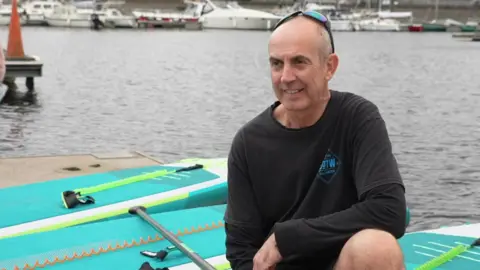
Gareth Stevenson runs Get Out On The Water, which helps train and facilitate water sports in south Wales.
He said Covid restrictions and accessibility of equipment had boosted paddleboarding’s popularity.
“There was an explosion in paddleboarding during Covid and those years where we were not able to travel,” he said.
“Everyone bought a paddleboard and had a go. We haven’t seen it in another sport in the same way, going from complete beginners to guys competing at international levels.”
He said paddleboarding was a “great social activity” but said people needed to develop core skills before venturing on to the water.
“The key thing is to learn safety. Read the environment, know where you’re paddling from and to have the right equipment with you at all times.
“It’s the same as walking up a mountain,” he said.
“Have a form of communication with you, let people know where you are going and paddle with friends.”
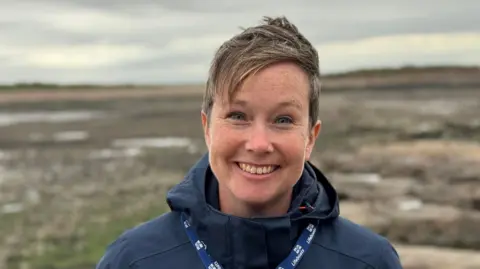
Ms Snow, from the RNLI, said the organisation wanted people to enjoy the coast but be prepared in case they get into trouble.
“It’s very dangerous unfortunately,” she said.
She said the charity had been called to many careless situations but “don’t judge” and urged everyone to call at the first sign of trouble.
Checking tide and wind speeds were simple ways to get the most out of the sport, she added.
“Paddleboarding is a very enjoyable and accessible sport.
“It’s gets people, who might otherwise not be able to get on the water, on it.”



